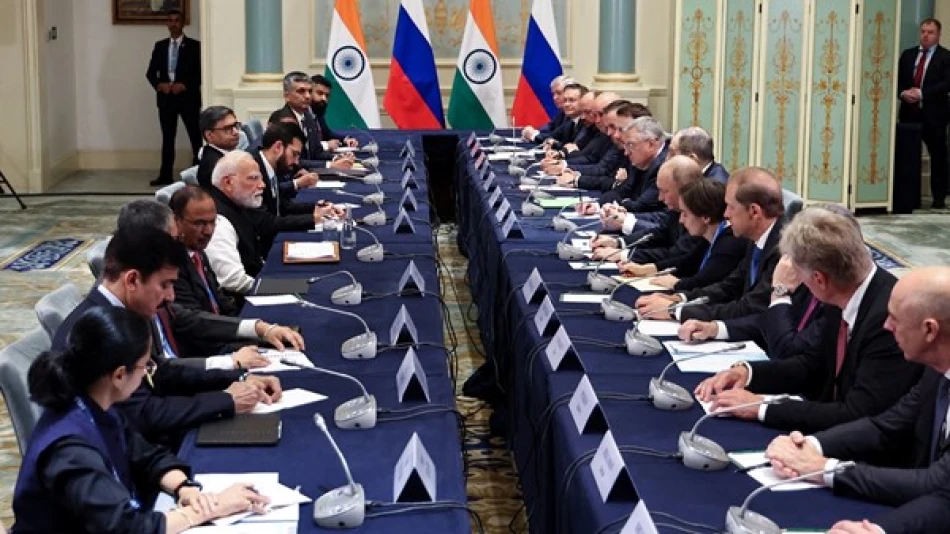
Putin Praises Strengthening of Russia-India Ties as Strategic Partnership Grows
Putin and Modi Strengthen Strategic Partnership as Russia Seeks Asian Allies Amid Western Isolation
Russian President Vladimir Putin and Indian Prime Minister Narendra Modi reinforced their nations' deepening partnership during talks at the Shanghai Cooperation Organization summit in China, with Putin describing their relationship as "special and friendly" while announcing plans for a December visit to India. The meeting underscores Russia's pivot toward Asian partnerships as Western sanctions continue to reshape global diplomatic alignments.
Diplomatic Warmth Against Geopolitical Tensions
Speaking on Monday in the coastal Chinese city of Tianjin, Putin emphasized the enduring nature of Russian-Indian ties, stating that "Russia and India have maintained special relations for decades" built on trust and friendship. The Russian leader referred to Modi as his "dear friend" in remarks captured on video by the Kremlin.
Modi, for his part, expressed hope that Russia and Ukraine could reach an agreement to end the current crisis—a diplomatically measured response that reflects India's careful balancing act between its traditional defense partner Russia and its growing ties with Western nations.
Strategic Calculations Behind the Partnership
Energy and Trade at the Center
The leaders discussed regional stability, bilateral trade, and energy cooperation—areas where both nations see mutual benefit despite international pressure. India has become one of Russia's largest oil customers since the Ukraine conflict began, purchasing discounted Russian crude that has helped Moscow maintain revenue streams while offering New Delhi significant cost savings.
This energy partnership represents a pragmatic approach by India, which has consistently prioritized its domestic economic interests over Western calls for Russian isolation. The relationship has proven resilient even as India simultaneously deepens defense and technology partnerships with the United States through initiatives like the Quad alliance.
December Summit Signals Continuity
Putin's planned December visit to India for the 23rd annual Russia-India summit, as announced by Russian foreign policy advisor Yuri Ushakov, demonstrates both countries' commitment to maintaining high-level engagement despite global tensions. These annual summits have been a cornerstone of bilateral relations since 2000, surviving various international crises and leadership changes.
Broader Implications for Global Alignments
The Russia-India partnership reflects a broader reconfiguration of international relationships as traditional Cold War-era non-alignment gives way to more complex, multi-polar arrangements. India's approach mirrors that of other major developing economies like China and Brazil, which have maintained economic ties with Russia while avoiding explicit support for its actions in Ukraine.
For Russia, cultivating relationships with major Asian economies has become essential for economic survival under Western sanctions. India represents not just a market for Russian energy and weapons, but also a pathway to broader Asian and Global South partnerships that could provide long-term alternatives to traditional European markets.
The meeting also highlights the growing importance of multilateral forums like the Shanghai Cooperation Organization, where non-Western powers can coordinate policies and present alternatives to Western-dominated institutions. As global economic and security architectures continue evolving, partnerships like Russia-India may increasingly define the emerging multipolar world order.
Most Viewed News

 Layla Al Mansoori
Layla Al Mansoori






